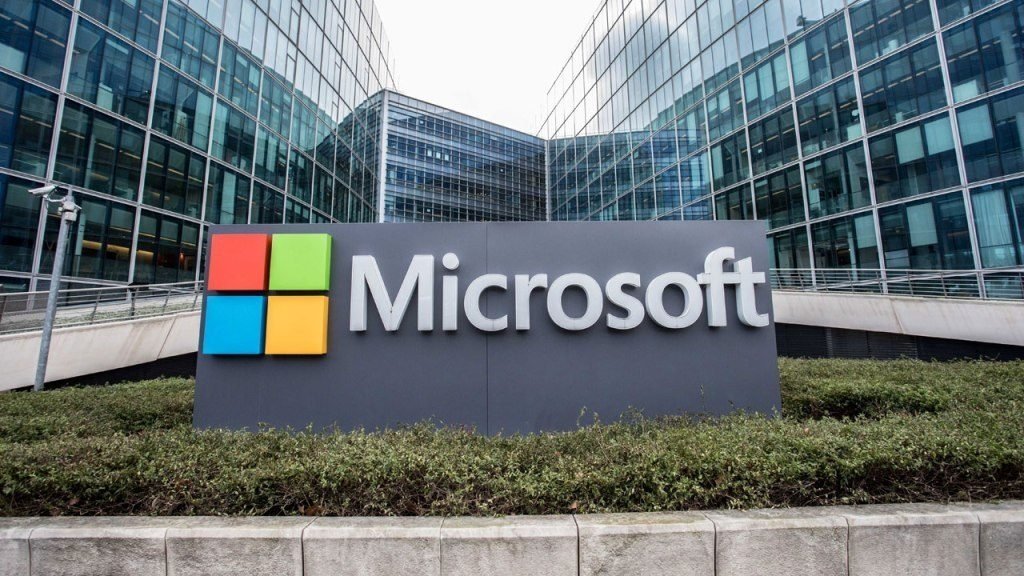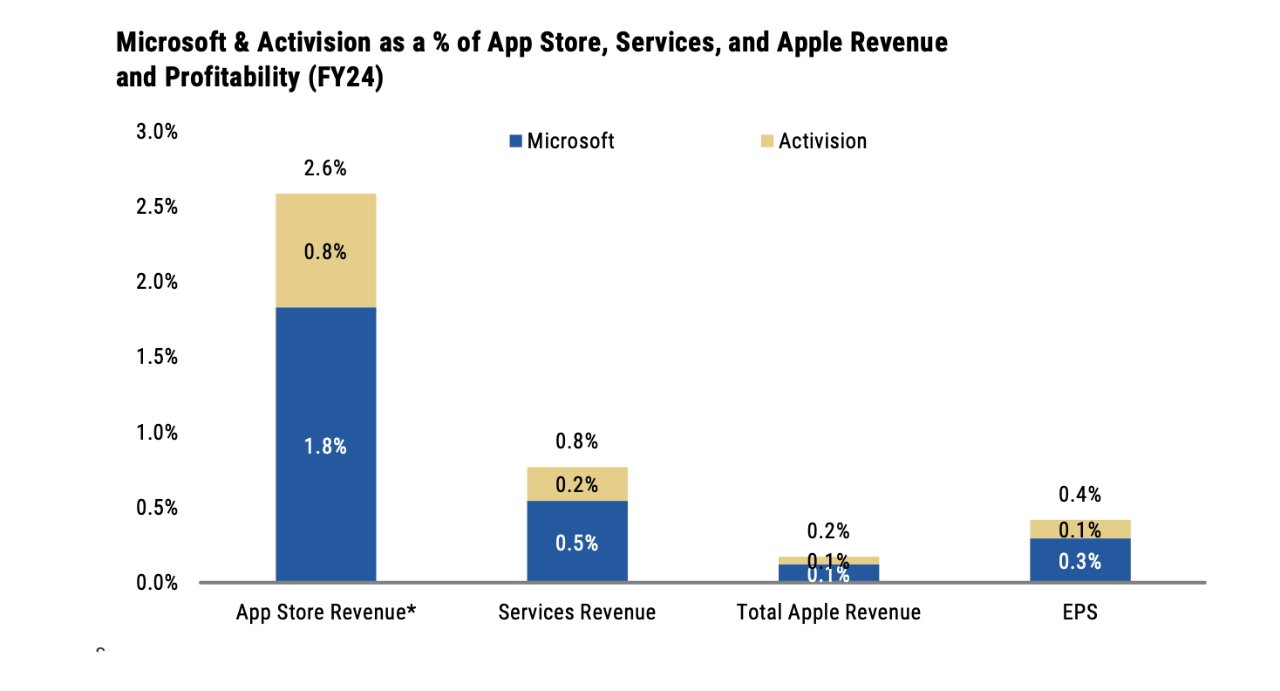Microsoft's iPhone App Store plan is limited threat to Apple, for now
Morgan Stanley analysts say that a potential Microsoft iPhone app store would initially have only a small impact on Apple if it ever launches -- but it's a potentially strong competitor in the longer term.

Microsoft gaming chief Phil Spencer recently announced that Microsoft is planning an App Store that would bring Xbox games to the iPhone. The intention is to launch a rival store as soon as the forthcoming EU Digital Markets Act comes in to force in 2024.
Now in a note to investors seen by AppleInsider, Morgan Stanley notes that the announcement contained very little detail. The whole Microsoft App Store is also reportedly conditional on Microsoft being able to close its Activision Blizzard acquisition, which has been provisionally blocked by UK regulators.
"Additionally, there are several other unknowns as it relates to Apple's allowance of 3rd party App Stores on iOS devices in Europe," say Morgan Stanley analysts. Those include whether "Apple charges a fee for purchases made on third party app stores," and whether |developers would be allowed to price apps lower on third party app stores."
There is also a question over whether developers "would have to choose which app store to sell their app on," and "whether Apple will allow third party payment systems for all applications in the App Store."
"All of these factors could meaningfully change what the potential impact is to Apple," say the analysts.

Source: Sensor Tower, Morgan Stanley Research; *Calculated as a percentage of 2022 App Store spending.
Most of this uncertainty could apply to any rival App Store, but Microsoft is a very well known brand, and Morgan Stanley says it has a good leadership team.
"We believe a potential MSFT app store would be an immaterial risk to AAPL at just 3% of App Store revs and <1% of Apple's total revs/EPS [earnings per share]," say the analysts. "However, MSFT's strong brand and tech leadership still represents a potential long-term threat to keep watching."
"If we took a 'worst case' view of the world and said the potential Microsoft app store could take all EU gaming revenue from the Apple App Store," they continue, "that would equate to 8% of App Store revenue, 2% of Apple Services revenue, and a ~1% hit to Apple company-level revenue and EPS."
Morgan Stanley also conducted a survey in the US and China, which says that fewer than 30% of Apple users "would be willing to purchase apps directly from a developer website." The survey also said that apps would have be priced around 35% cheaper to make customers switch from Apple's App Store.
Europe's Digital Markets Act covers more than alternative App Stores. Its regulations <a href="https://appleinsider.com/articles/23/03/02/new-eu-rules-would-force-apple-to-open-up-imessage">may also require Apple to open up its Messages service.
Read on AppleInsider

Microsoft gaming chief Phil Spencer recently announced that Microsoft is planning an App Store that would bring Xbox games to the iPhone. The intention is to launch a rival store as soon as the forthcoming EU Digital Markets Act comes in to force in 2024.
Now in a note to investors seen by AppleInsider, Morgan Stanley notes that the announcement contained very little detail. The whole Microsoft App Store is also reportedly conditional on Microsoft being able to close its Activision Blizzard acquisition, which has been provisionally blocked by UK regulators.
"Additionally, there are several other unknowns as it relates to Apple's allowance of 3rd party App Stores on iOS devices in Europe," say Morgan Stanley analysts. Those include whether "Apple charges a fee for purchases made on third party app stores," and whether |developers would be allowed to price apps lower on third party app stores."
There is also a question over whether developers "would have to choose which app store to sell their app on," and "whether Apple will allow third party payment systems for all applications in the App Store."
"All of these factors could meaningfully change what the potential impact is to Apple," say the analysts.

Source: Sensor Tower, Morgan Stanley Research; *Calculated as a percentage of 2022 App Store spending.
Most of this uncertainty could apply to any rival App Store, but Microsoft is a very well known brand, and Morgan Stanley says it has a good leadership team.
"We believe a potential MSFT app store would be an immaterial risk to AAPL at just 3% of App Store revs and <1% of Apple's total revs/EPS [earnings per share]," say the analysts. "However, MSFT's strong brand and tech leadership still represents a potential long-term threat to keep watching."
"If we took a 'worst case' view of the world and said the potential Microsoft app store could take all EU gaming revenue from the Apple App Store," they continue, "that would equate to 8% of App Store revenue, 2% of Apple Services revenue, and a ~1% hit to Apple company-level revenue and EPS."
Morgan Stanley also conducted a survey in the US and China, which says that fewer than 30% of Apple users "would be willing to purchase apps directly from a developer website." The survey also said that apps would have be priced around 35% cheaper to make customers switch from Apple's App Store.
Europe's Digital Markets Act covers more than alternative App Stores. Its regulations <a href="https://appleinsider.com/articles/23/03/02/new-eu-rules-would-force-apple-to-open-up-imessage">may also require Apple to open up its Messages service.
Read on AppleInsider

Comments
As it should be. In all things, at all times—responsibility for your own actions, not ceding that to some corporation, even if you love them with all your heart.
"iPhone is limited threat to BlackBerry, for now."
Bring on the competition. I can't wait for native controllers for my download clients, other open source tools, and a native Game Pass app.
I’m not discounting the ability of some users to make smart, or more accurately defined, informed decisions. Today they don’t really have to think about it because the default setting of the trigger safety is “Safe.” Look at what happened with app tracking transparency. Once users were made aware, I.e., informed, that some apps were tracking them and slurping up their personal data they opted out of using those apps or at least told them not to track. Hopefully, adding foreign app stores to the iPhone will entail some sort of similar notification to users about the inherent risks that allowing those app stores and their apps on their device entails. They’ll no longer be relying on Apple and its proven track record, but on another entity who’s likely motivated by their desire to avoid Apple’s approval scrutiny and payment system. Both of these secure processes from Apple have stood the test of time and held up to threats. Foreign app stores are a whole new world of unknowns, both from an app integrity and payment security standpoint.
A lot of this will come down to what Apple “is allowed” to do under the imposed edicts to protect themselves, their platform, and their users from harm in an environment that is ripe for abuse. Who knows, it may work out perfectly fine. Or not.
Ideally Apple will void all warranty on the device and all on-device apps if a 3rd party store is installed and only allow apps from a single store at a time, so if you install a 3rd party store you (temporarily) lose the apps from all other stores for security reasons.
How would allowing Apple to basically 'tax' third party stores on their activities, get them off the EU hook?